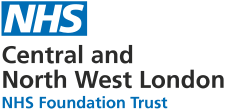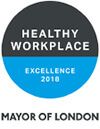Reminder for AC renewal
auto-mark-complete
Useful websites links for renewal /initial application including Portfolio preparation
Useful websites links for renewal /initial application including Portfolio preparation
Websites:
GOV UK:
Mental Health Act: exercise of approval instructions
Royal College Website:
London Region Section 12(2) Mental Health Act 1983 and Approved Clinicians Approvals Panel
Instruction for S12 Approvals
Instruction for AC Approvals
Guidance for Doctors seeking AC staus via the Portfolio route
Who is eligible for AC Approval? Professional Requirements
Who is eligible for AC Approval? Professional Requirements
What do Panels do?
What do Panels do?
Grant S12/AC Approvals appropriately, behalf of the Secretary of State
Upload all approvals information for Sec 12(2) and AC status on to the National Database
Endorse s12/AC training courses in England and Wales
Ensure sufficient s12/AC initial and refresher courses are available
Promote good practice s12/AC practice regionally
Liaise with GMC/other professional bodies regarding complaints about s12/AC approved doctors – note Panels do not directly investigate complaints
Module 6
Eligibility Criteria and Application Process for AC Status
Author: Denista Wincey, Approvals Lead – London s12/AC Approvals Panel
S12/AC Approval
S12 /AC Approval is a statutory function held by the Secretary of State for Health
Department of Health on behalf of the Secretary of State (SoS) for Health in 2014 awarded contracts to 4 Regional Panels to undertake the approvals function (reduction from 7 regional panels)
London
(CNWL NHS Trust)
North of England
North West,
Yorkshire & Humber (TEWV NHS Trust)
Midlands & East
East of England (RDASH NHS Trust)
South of England
South West and South Central
(Winterhead Ltd - Independent Provider)
Module 5.2
Treatment Of Children (Under 16 Years) & Young Persons (16 & 17 Years)
Authors: Dr Dan Hayes, Consultant Psychiatrist & Lead Panel member – London s12/AC Approvals Panel
Denista Wincey, Approvals Lead – London s12/AC Approvals Panel
Introduction
The application to those under 18 is different. Different considerations apply to those who are sixteen and over (‘young persons’) and to those under 16 (‘children’).
When an under 18 year old requires treatment, it may be necessary to consider their capacity/ competence to consent to treatment in the context of their age and maturity, as well as the effect of any illness or disability on their understanding. It is also necessary to consider the role of someone with parental responsibility under the Children Act 1989, or the Court. There may be a number of different people who can consent to treatment/ admission if appropriate to do so. You may visit the guidance in relation to treatment of children is given in chapter 19 of the MHA 1983 Code (2015) and also at para 24.31-24.34.
Module 5.1
Different Routes Towards Compulsory Care And Treatment
Author: Robert Keys, Head of MH Law, NELFT
Learning Objectives
- To consider how voluntary consent underlies all medical treatment
- To consider concepts around autonomy and refusal of treatment
- To gain an overview of the broad range of legal powers that can be used to deprive of liberty and/or give compulsory treatment
- To see how ideas of human rights affect treatment
- To consider ethical justifications for compulsory treatment
To examine in summary the main legal authorities for compulsory treatment and how these differ
Module 3.1
Managers Hearings and Tribunals
Author: Arthur de Frisching, Hospital Manager
Tribunals and Managers’ Reviews
Role and Purpose
Applying The Law
Applying The Law
The flow chart below suggests how to approach making treatment decisions in practice.

Treatment on a CTO
Treatment on a CTO






